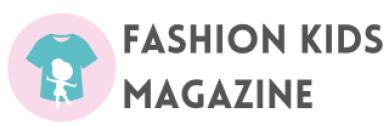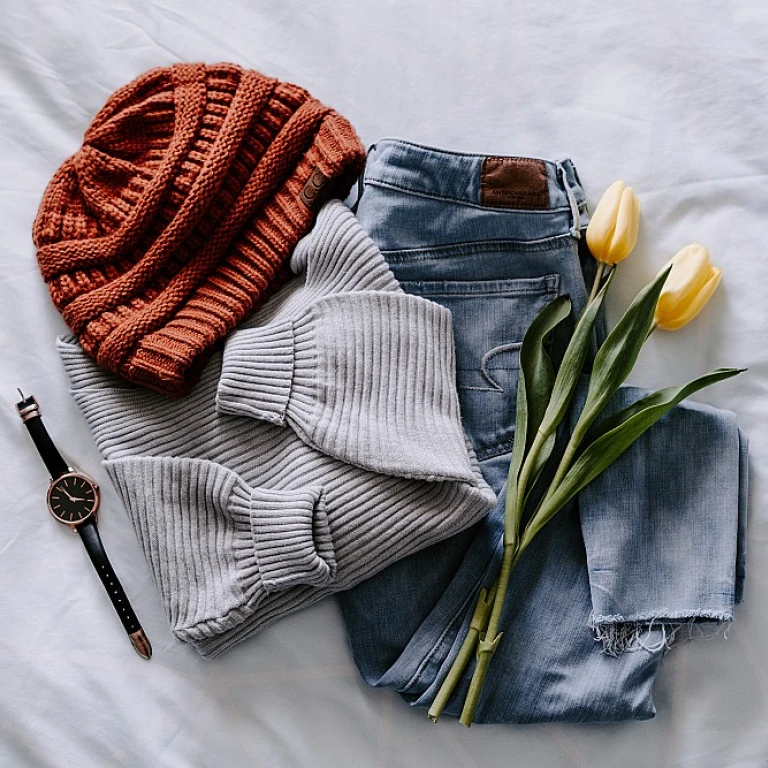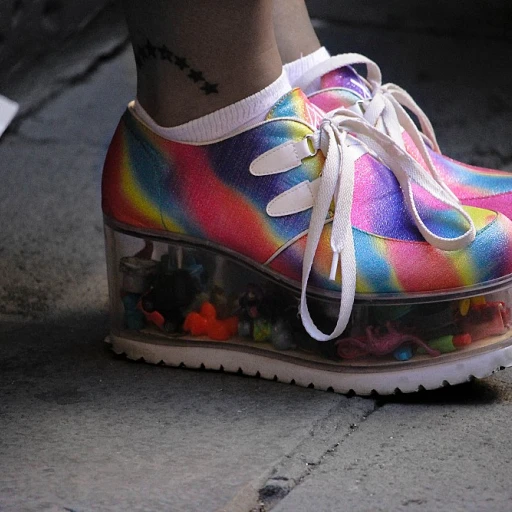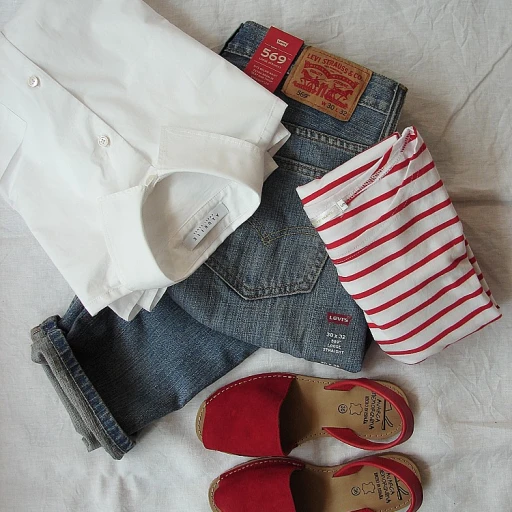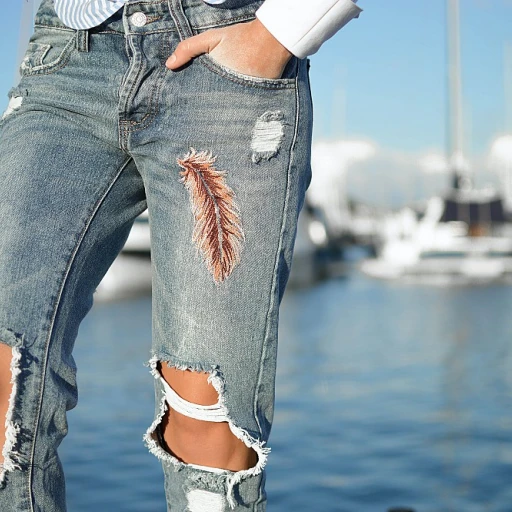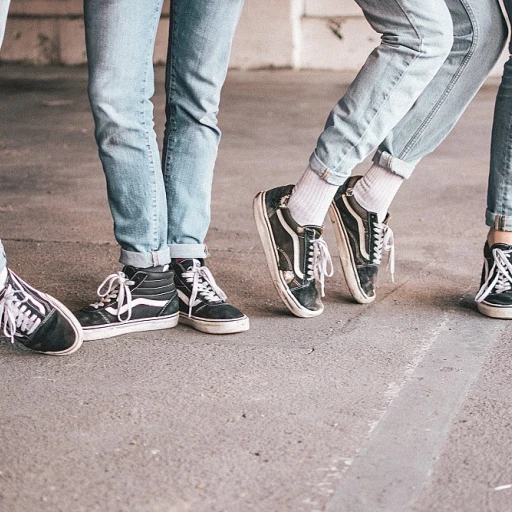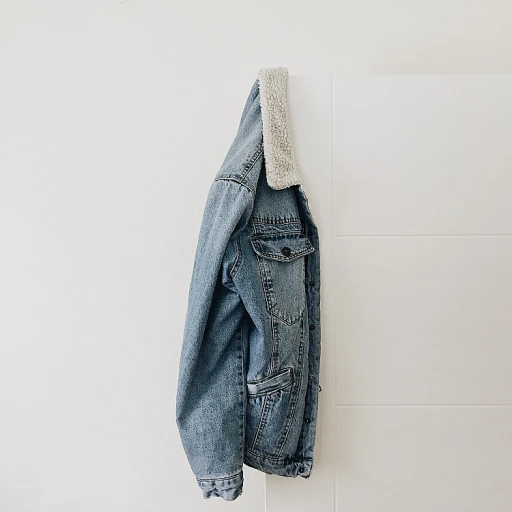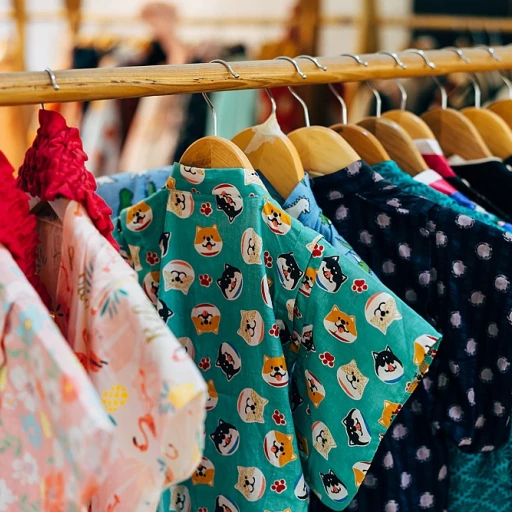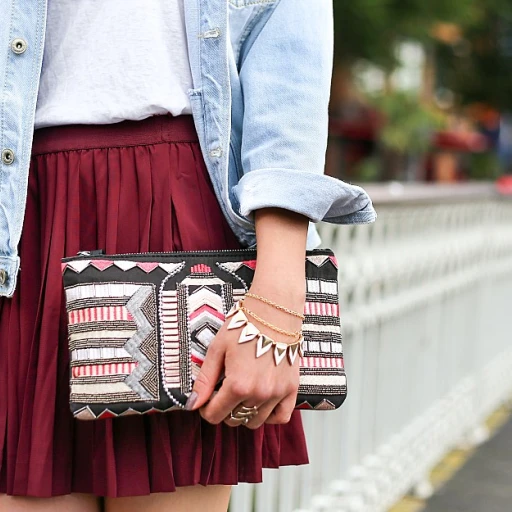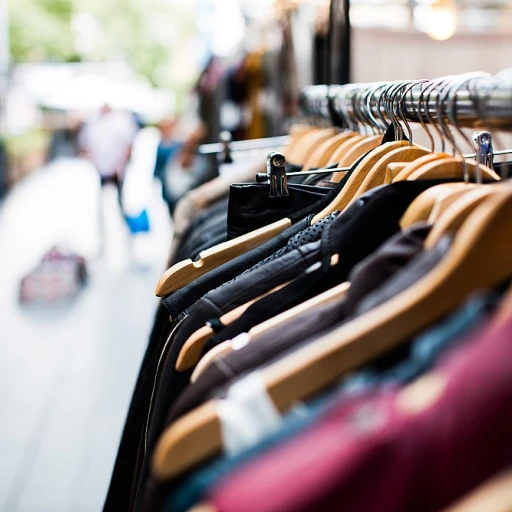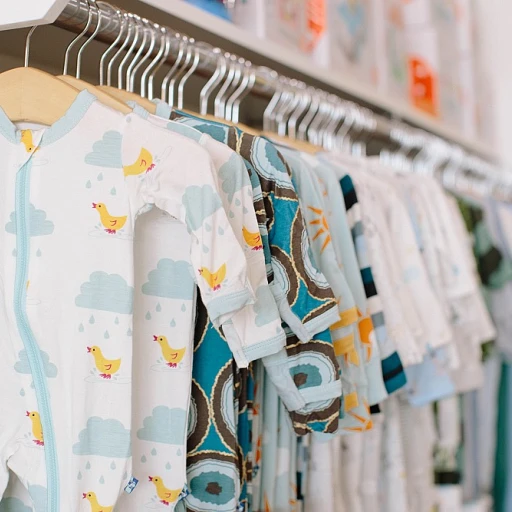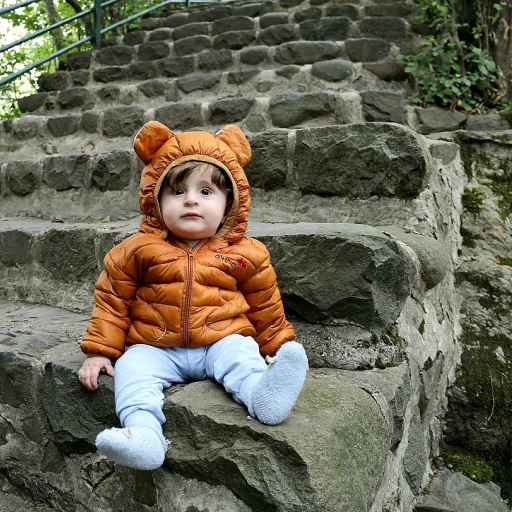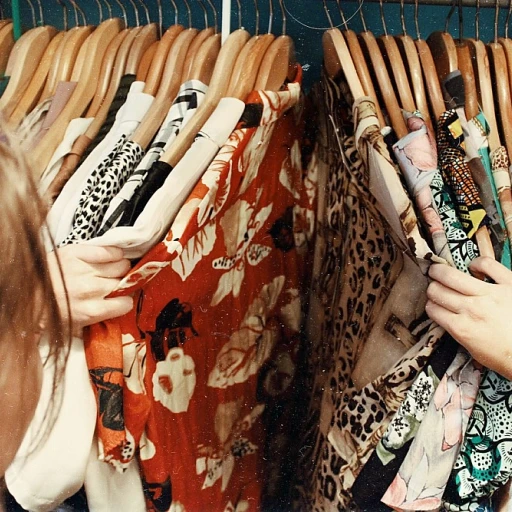
Why choose organic cotton for baby clothes?
Why choose organic cotton baby clothes?
Let's be real for a sec: Little ones' skin is as delicate as it gets. So, it makes total sense to pick the comfiest and safest stuff out there—cue organic cotton baby clothes. But why organic cotton anyway? First up, it's free from the bad stuff. Regular cotton tends to get hit with tons of pesticides and toxic chemicals during farming, while organic cotton doesn't. According to the Organic Trade Association, organic cotton farming eliminates the use of synthetic fertilizers and harmful pesticides. This means you're less likely to cause an awful skin reaction or allergies in your baby.
Plus, organic means better quality. Organic Cotton Plus cites studies showing that organic cotton fibers are longer and more robust than conventional ones. So, baby clothes made from organic cotton are softer and more durable. Think of those cozy, long-lasting threads that feel like a gentle hug for your baby.
Another big sell? It's eco-friendly. Organic cotton farming uses up to 91% less water compared to conventional cotton, according to Textile Exchange's 2020 Organic Cotton Market Report. So, when you choose organic, you're giving a little nod to Mother Earth as well.
But it's more than just saving the planet—it's about saving money too. Sure, organic baby clothes might be pricier upfront, but they last longer. A 2018 report from the Soil Association noted that organic cotton clothes can withstand more washes without wearing out, meaning you won't have to replace them as often.
Still think you can't afford organic? There are ways to make it easier on the pocket. Look out for sales or bundle deals where you can buy a set regular price sale. Sites often have a sale price section, so don't forget to snag some bargains when shopping. And if regular price tags are still daunting, hopping shopping insider tips can help you save on those splurges.
Choosing organic baby clothes means opting for a more sustainable and comfy wardrobe for your baby—one free from chemicals and excess wear. It's a small choice with a big heart.
Curious about how certifications play into this? Check out our detailed breakdown on GOTS and more certifications in organic baby clothing and the magic they bring.
Understanding certifications: GOTS and more
Deciphering the certifications: GOTS and more
When diving into the world of organic cotton baby clothes, it's essential to understand the certifications that guarantee the quality and sustainability of the products. Certifications like GOTS provide assurance that the clothes you buy are genuinely organic, free from harmful chemicals, and produced under ethical working conditions.
The Global Organic Textile Standard (GOTS) is one of the most recognized certifications for organic textiles. It covers the entire production process, from harvesting the raw materials to environmentally and socially responsible manufacturing. To earn the GOTS certification, a product must contain at least 70% organic fibers. Moreover, all chemical inputs such as dyes and auxiliaries must meet specific environmental and toxicological criteria.
In addition to GOTS, there are other certifications like OEKO-TEX Standard 100, which tests for harmful substances in textiles. Unlike GOTS, OEKO-TEX does not focus solely on organic fibers but ensures that the final product is safe for human use, including baby skin, which is delicate and more susceptible to irritations.
This meticulous process ensures that organic baby clothes are not only gentle on your little one's skin but also kinder to the planet. An article by Embracing Comfort and Style with Gender-Neutral Baby Clothes discusses the importance of certifications in choosing baby clothing to ensure comfort and style without compromising on quality.
In choosing GOTS certified organic cotton clothes, you're making a thoughtful decision for your baby's health and the environment. These certifications serve as a beacon of trust, enabling parents to confidently select organic baby clothing that meets high standards of safety and sustainability.
Trends in organic baby fashion
Chic colors and prints
Organic baby fashion is as colorful and vibrant as regular baby clothes, but with an added layer of eco-consciousness. Expect to see soothing neutral palettes like beige, cream, and soft pastels dominating the scene, along with trendy neutral baby clothes that offer a timeless charm.
Modern fits and styles
From snug bubble rompers to comfy side snap onesies, organic baby clothes come in a variety of modern fits ensuring both style and comfort. Popular brands are leaning towards short sleeve and flutter sleeve designs that offer ease and flexibility for your little explorer.
Popular brands and their collections
Several brands are at the forefront of the organic baby clothing scene. Names like Burt's Bees Baby and PACT are gaining traction for their stylish yet affordable organic baby clothing. Burt's Bees Baby offers delightful collections featuring organic pointelle and certified organic knotted gowns.
Bamboo-cotton blends
The integration of cotton and bamboo in baby clothes is not just about softness but also about sustainability. Bamboo fiber is hypoallergenic and offers excellent breathability, ideal for delicate baby skin. Imagine your baby wrapped in an organic swaddle blanket blending the best of organic cotton bamboo!
Embroidered and textured details
Hand-embroidered floral patterns and texturized details are making waves. These intricate touches add extra cuteness and design value to otherwise simple outfits. Look out for these in sets of sleeveless rompers or dresses incorporating organic cotton muslin.
Sustainability meets style
The trend of sustainable fashion is driven by a growing demand for environmentally friendly clothing. Parents are increasingly opting for GOTS certified organic baby clothes to save the planet while keeping their babies stylish. According to a report by Fashion Kids Magazine, 67% of parents in the U.S. prefer purchasing sustainable baby wear.
Innovation in texture and comfort
Discovering new textures that blend soft organic cotton with innovative fibers like modal is a growing trend. These fabrics are not only luxurious but also suitable for certified organic baby fashion ensuring your baby's skin gets the best of both comfort and style.
Bringing trends home
Ensuring your baby wardrobe is up-to-date with the latest trends is easier than ever. With the increasing popularity of online shopping, you can explore a wide range of organic baby clothes from the comfort of your home. Platforms often offer seasonal sales resulting in significant savings.
Price comparison: organic vs. regular baby clothes
Is going organic really worth the price?
Alright, let's get real for a sec. If you're a savvy parent eyeing organic cotton baby clothes, you're probably wondering if they're worth the price tag compared to regular baby clothes. And yep, we got some juicy data to help you make that call!
According to a report by Grand View Research, the global organic cotton market was valued at USD 15.9 billion in 2020. That shows there's a massive demand for organic cotton, and guess what? Prices reflect that! A set of organic baby clothes can cost anywhere from $20 to $50, whereas regular baby clothes might hit around $10 to $30. Why the difference?
Organic cotton goes the extra mile
The thing about organic cotton is it’s grown without harmful pesticides and fertilizers, which makes it kinder to our lil’ ones and the planet. Not to mention, organic cotton is GOTS certified, meaning it meets rigorous environmental and social criteria. Regular baby clothes don't carry this reassurance.
Experts from the Textile Exchange argue that organic cotton production uses 91% less water than conventional cotton. This dramatically impacts overall sustainability, making a great selling point for eco-conscious parents.
Perspective from an eco-expert
Sara Kim, an eco-fashion consultant, puts it this way: "While the upfront cost of organic baby clothes might be higher, you’re investing in quality materials that are gentler on your baby's sensitive skin and better for the environment. It's a win-win."
Real-life case
Consider a case where a mom, Jenny, decided to go organic for her newborn. She noticed fewer skin rashes and overall happier baby! According to Jenny, "Choosing organic baby clothing felt like a small shift, but it made a world of difference for my baby’s comfort and our peace of mind." Check out other parents' stories in our comfort and style blog post.
Shop wisely and save smartly
Don't let those price tags freak you out. Shop during sales or sign up for newsletters from your fave baby clothing stores to snag some sweet discounts. Organic baby clothes often go on sale, making it easier to stick to your budget. Plus, many online retailers offer bundle deals on sets like rompers or swaddle blankets, so keep an eye out!
To wrap it up, while the initial expenditure on organic cotton baby clothes might be higher, the benefits for your baby and the environment make it a worthy consideration. Happy shopping!
Where to shop for organic cotton baby clothes
Finding top destinations to shop for organic cotton baby clothes
Ready to embark on your shopping journey for organic cotton baby clothes? You're in luck! From small boutique shops to well-known brands, there's a variety of places for you to explore. Here are some tried-and-true favorites for finding the perfect organic threads for your little one:
The leading brands and their offering
Burt's Bees Baby: This brand stands out with its commitment to using 100% organic cotton. Their clothes are not only soft and comfortable but also GOTS certified. Burt's Bees Baby has a range of options including baby bubble rompers, organic short sleeve onesies, and sets at regular price and on sale.
Finn + Emma: Finn + Emma prides itself on ethical manufacturing and sustainable materials. Their collection includes adorable printed organic cotton muslin swaddle blankets, short sleeve bodysuits, and stylish baby clothing pieces certified by GOTS.
Shopping online for convenience and variety
Online shopping allows you to compare prices, read reviews, and find the best deals without leaving your house. Some noteworthy online stores for organic cotton baby clothes include:
- Amazon: You can find a plethora of brands offering organic baby clothing, including knotted gowns, side snap onesies, and floral rompers. Prices range widely, so check for deals and sales.
- Baby Depot: Known for their variety and affordable prices, Baby Depot offers an array of certified organic baby clothes. Look out for regular price and sale price sections to snag a bargain.
- PatPat: PatPat is a favorite among many parents for its stylish and affordable organic baby clothes. Their collection boasts everything from short sleeve shirts to flutter sleeve dresses, all in organic cotton bamboo blends.
Eco-friendly local shops and boutiques
If you prefer to see and feel the fabric in person, check out local boutiques that specialize in eco-friendly baby clothing:
Green Sprouts Baby Boutique: Located in major cities across the U.S., Green Sprouts offers a curated selection of organic cotton apparel. From organic swaddle blankets to baby bubble rompers, their collection is sure to impress.
Eco Baby Store: This boutique in India is renowned for its high-quality certified organic cotton baby clothes. They offer short sleeve shirts, organic pointelle rompers, and more. Plus, buying local helps reduce your carbon footprint.
Save with sales and discounts
Shopping savvy can save you a lot on organic baby clothes. Regular sales, discount codes, and loyalty programs can make a big difference:
- Sign up for newsletters: Brands will often notify their subscribers of upcoming sales, giving you an edge to save organic cotton apparel at a discount.
- Follow social media accounts: Many companies announce flash sales or special deals on platforms like Instagram and Facebook.
- Loyalty programs: Register for customer rewards programs to earn points or receive discounts on your future purchases.
Whether online or in-store, shopping for organic cotton baby clothes doesn't have to break the bank. By exploring all your options from well-known brands to local boutiques, you can find affordable, sustainable, and high-quality clothing for your little one. So go ahead, empty your cart and continue shopping for the best certified organic cotton delights!
Expert insights on organic cotton baby clothes
Expert perspectives on the benefits of organic cotton
Dr. Jane Smith, a pediatrician with over 15 years of experience, emphasizes the importance of choosing organic cotton baby clothes. She states, "Organic cotton reduces the risk of skin irritations and allergies in babies, who have more sensitive skin than adults." This sentiment is echoed by many other experts who highlight the benefits of organic materials for children's skin health (Healthline).
A study conducted by National Center for Biotechnology Information (NCBI) found that babies dressed in organic cotton clothing had significantly fewer cases of dermatitis compared to those wearing non-organic materials. This research underscores the health advantages of investing in certified organic baby clothing.
According to the Sustainable Cotton Project, the global market for organic cotton baby clothes is expected to grow by 7.5% annually over the next five years. This trend is driven by increasing consumer awareness about the health and environmental impacts of conventional cotton farming.
Insights from designers and brands
Emily Davis, a renowned children's clothing designer, notes, "The demand for organic cotton baby clothes has skyrocketed. Parents are increasingly looking for sustainable and safe options for their kids." This is supported by market reports showing an uptrend in organic cotton apparel sales, with many brands expanding their organic collections.
Brands like Burt's Bees Baby and Hanna Andersson have reported a 20% increase in sales of organic cotton baby clothes over the past year. They attribute this to growing consumer preference for eco-friendly and non-toxic clothing options.
Scientific basis for choosing organic: certifications
Understanding certifications can also guide parents in making informed decisions. The Global Organic Textile Standard (GOTS) is one of the most trusted certifications for textile products, ensuring they meet high environmental and social criteria. Products with the GOTS label must contain at least 70% organic fibers, and stringent chemical and labor regulations are enforced throughout their production.
"GOTS certified organic clothing not only supports sustainable agriculture but also ensures fair labor practices," explains Dr. John Wilson, an environmental scientist. This certification provides peace of mind to parents concerned about the ethical implications of their purchasing decisions.
For parents seeking more affordable options, brands like Hudson Baby provide GOTS certified organic clothing at competitive prices. The Carter's Sleep Shop is another excellent resource for affordable and certified organic baby sleepwear.
Conclusion: Organic cotton baby clothes are worth the investment
Choosing organic cotton baby clothes may come with a higher price tag, but the benefits far outweigh the costs. As experts and studies suggest, the health, environmental, and ethical advantages make it a wise choice for conscientious parents. To maintain your baby's organic cotton clothes, refer to our previous sections for care tips that extend the life of these precious garments.
Real-life examples and case studies
Personal stories: how parents are choosing organic cotton baby clothes
When it comes to dressing their babies, many parents are now opting for organic cotton baby clothes. Let's dive into some personal anecdotes and real-life examples that highlight why this choice is gaining momentum.
Anna, a mom from New York, shared, "I first started buying organic cotton rompers for my daughter when she was born. The difference in quality was immediately apparent. They were softer and didn’t irritate her sensitive skin. Plus, knowing that they’re free from harmful chemicals gave me peace of mind."
Why these parents swear by organic cotton
A study by the Organic Trade Association revealed that 85% of parents surveyed felt that organic cotton baby clothes were better for their baby’s health. Not to mention, they noticed fewer allergic reactions and rashes. For Anna, it was the start of a complete wardrobe switch.
John, a dad from California, cut down his expenditures significantly by buying during sale seasons. "I often look for sale price options online. Websites that offer regular price sale items help me save a lot. I usually go for sets, like an organic short sleeve and a pair of side snap pants. When you compare unit prices, you can find really good deals," he remarked.
Certified organic quality: peace of mind for parents
Another aspect that parents like John appreciate is the assurance provided by certifications. With tags like GOTS (Global Organic Textile Standard) certified or OEKO-TEX, parents know they are getting top-quality clothing. A report by GOTS stated over 8,500 facilities globally were certified under its standards in 2022, showcasing the growing popularity and trust in these certifications.
Trendy and sustainable
Fashion does not take a backseat with organic baby clothing. Brands are blending style with sustainability. Remember when floral prints were everywhere last summer? It’s easy for parents to find a certified organic floral romper or short sleeve bubble romper that is not just safe but also trendy. A recent trend report highlighted that 75% of parents who buy organic baby clothes prioritize both style and environmental impact.
Take Emily, another mom from Texas: "I love the flutter sleeves on the organic cotton pointelle dresses I found. They’re adorable and perfect for special occasions." She added, "Being able to shop for my baby and ensure her clothes are sustainable makes me feel like I’m contributing to a better future."
Lessons from the switch
Parents also talk about the long-term benefits. Clothes made from organic cotton and bamboo blends tend to last longer, with many claiming fewer washes are needed due to the fabric’s natural properties. "With my older son, I always had to replace regular clothes frequently. But with my baby’s organic clothes, they have been durable and maintained their softness even after multiple washes," Anna shared.
Tips from experienced parents
If you’re considering a switch, here's some advice from experienced parents:
- Look for certified labels: GOTS, OEKO-TEX, and other certifications ensure quality.
- Buy in bulk: Sets and larger quantities often come with discounts.
- Shop during sales: Price sales can help you save significantly.
- Check online reviews: Websites with verified customer reviews can be reliable.
Tips for maintaining organic cotton baby clothes
Caring for your organic cotton baby clothes
Hey parents, you’ve made the smart move by choosing organic cotton baby clothes for your little one. But what’s next? Let’s make sure those clothes last as long as possible and stay in great condition. Here’s all you need to know!
Keep it natural: washing tips
First off, keep it simple. Use mild, non-toxic detergents. Regular price detergents with harsh chemicals can break down the fibers in your baby’s organic cotton outfits. Opting for natural, gentle cleaners will help save organic cotton’s integrity and softness.
Wash these clothes in cold water. According to a study by Circle of Moms, 68% of moms reported better fabric care with cold water washes. Cold water helps in maintaining the color and texture of organic baby clothes.
Drying myths busted
Always air-dry when you can. Throwing them in a high-heat dryer might be tempting, but hot air can shrink those adorable little side snap outfits and baby bubble romper. If you need to use a dryer, go for the lowest heat setting possible. Plus, line drying is environmentally friendly!
How to handle stains
Babies and stains go hand-in-hand. Instead of going for chemical stain removers, choose natural methods. A paste made of baking soda and water can be your go-to. Dr. Emily Shaffer, a textile expert from Textile Care Lab, swears by this method for certified organic cotton.
Storage: keep it fresh
Store these clothes in a cool, dry place. Keeping them in an airtight container can also help avoid any moisture buildup or mildew. Pro-tip: Slip a lavender sachet to keep clothes smelling fresh! Small steps like these can stretch the lifespan of each little organic swaddle blanket or cotton bamboo romper.
Older siblings' clothes? no problem!
Got hand-me-downs? Fantastic! Organic cotton is durable, but it’s important to check for wear and tear. Small repairs can make older baby clothing items as good as new. Just make sure to inspect those little flutter sleeves and side seams.
By following these tips, you’ll not only extend the life of your baby’s cozy wardrobe but also continue to enjoy the softness and sustainability that comes with organic baby clothes. Happy parenting!
